OnPoint
Aired: Monday, July 8, 2013
My interview with E&E News just aired today, where we discussed the Pebble Mine -- a giant gold and copper mine proposed at the headwaters of the greatest wild salmon fishery in the world. EPA just concluded a 60-day public comment period, and the vast majority of people asked EPA to protect Bristol Bay from Pebble Mine. NRDC members and activists alone sent over 267,000 petitions to the agency. I discussed this and more in the interview with E&E . You can read the full interview transcript below.
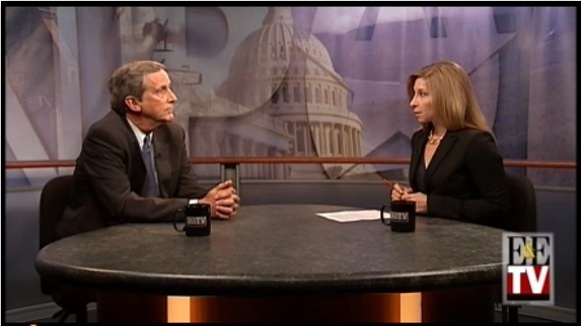
Transcript
Monica Trauzzi: Hello, and welcome to OnPoint. I'm Monica Trauzzi. Joining me today is Joel Reynolds, Western director at the Natural Resources Defense Council. Joel, thanks for coming on the show.
Joel Reynolds: Thanks for having me.
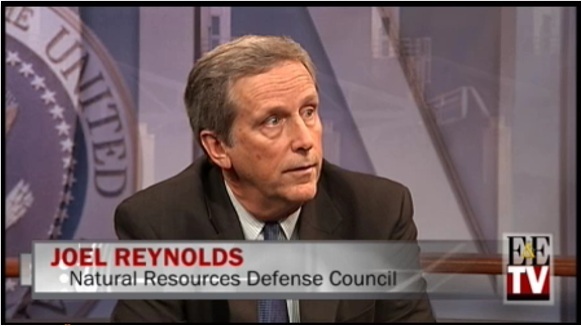
Monica Trauzzi: Joel, Pebble Mine supporters argue that USCPA is unfairly using its Bristol Bay Watershed assessment to block the Pebble Mine. John Shively, the CEO of the Pebble Partnership, was on the show recently, and he suggested that there may be more of a bias developing at EPA on this issue. Is EPA allowing the process to move forward in a clear and fair manner?
Joel Reynolds: I don't think there's any question but that they are. This has been a very deliberate, very transparent, very participatory process from the - from the beginning. And the notion that the preparation of a risk assessment for the Bristol Bay Watershed by the EPA is an attempt to stop the project is a complete mischaracterization of the process, because there's nothing regulatory about it. It's clearly authorized to do this by Congress. It's a study. What the EPA will eventually do based on the study is really the question, and I think Mr. Shively is anticipating what he, the direction he feels that the agency will go.
Monica Trauzzi: What do you believe EPA's authority is under the Clean Water Act on veto authority, and how could that be applied to this case? I mean, specifically what can they veto and in what way?
Joel Reynolds: So EPA has had for some 40 years authority under the Federal Clean Water Act granted by Congress under Section 404C of the Federal Water Pollution Control Act, and that authority allows it under certain specified circumstances at any time to come and restrict, prohibit, or withdraw a authority for a dredge and fill permit. So that's a lot of words, but basically what it means is that EPA has clear and undisputed authority under the Clean Water Act to intervene in a case like the Pebble Mine.
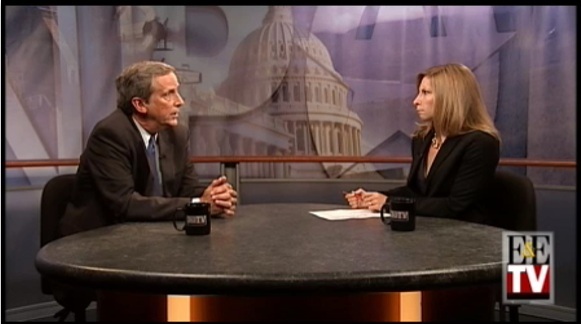
Monica Trauzzi: And when I spoke with John Shively, he made it pretty clear that they basically just want to be able to go through the NEPA process. Should they be allowed to go through that process? Isn't that the fair approach at this point? Take a look at that project through that process?
Joel Reynolds: Yeah. I fundamentally disagree with the notion that the Pebble Partnership is entitled to go through the NEPA process. The fact is, as I said, EPA has this authority. Congress gave it to them. They've used it perhaps a dozen times in the 40 year history of the act. And what that means is they have been very careful about how they used it. This is a situation where John Shively and his consortium of mining companies want to build one of the world's largest open pit mines at the headwaters of one of the greatest wild salmon fisheries in the world. Is it an utterly inconsistent use at the headwaters of a resource that we simply can't afford to lose. This fishery generates 30 to 50 million wild salmon every year, and about $1.5 billion in revenue, tens of thousands of jobs. Is that something we're prepared to risk over a large-scale open pit mine that will require maintenance, not just for 100 year, not just for 500 years or 10,000 years, but forever, to protect that fishery from being contaminated? It seems to me this exactly the situation that Congress envisioned for use of this 404C authority.
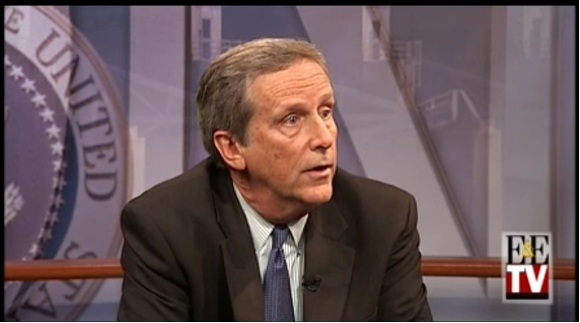
Monica Trauzzi: So let's dig into the debate a little more, because this is a big debate in Alaska right now. What's your perspective on the heart of the debate? I mean, a lot of people say it breaks down to salmon versus gold? Is that your perspective on it?
Joel Reynolds: I think that's too simplistic.
Monica Trauzzi: OK.
Joel Reynolds: But I think it's a very bad idea, and more important, over 80 percent of the people who live in the region think it's a bad idea. One of the great economic engines in Alaska today, both in terms of revenue and in terms of jobs, is the fisheries. And one of the things that people in Alaska seem to agree on is that we cannot allow anything to endanger that fishery. So it really comes down a question of whether we can have any confidence that a massive open pit mine for copper at the headquarters of the Bristol Bay Fishery can ever be engineered in a way that will give us confidence over the lifetime of this project, which, again, is forever, whether that can be engineered safely. And I don't think there's anything that we would learn in a NEPA process that would give us that confidence.
Monica Trauzzi: But if you're making the economic argument against the mine, can't you make it for the mine as well? I mean, won't it produce jobs? Isn't there economic viability to the Pebble Mine?
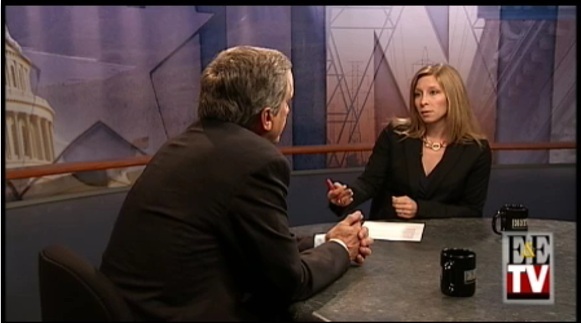
Joel Reynolds: Possibly. Let's face it. It's a development project. There will be jobs. And I think there'd be a lot of jobs in environmental cleanup once that mine gets going. But the reality is we have today tens of thousands of jobs that are generated every single year, and have been for a very long time, and will be for a very long time going forward, if we protect it. But we've had experience in the Pacific Northwest, California, Oregon, Washington, where we've allowed development to destroy vibrant salmon fisheries, and now we're spending hundreds of millions of dollars to try to bring them back, to generate runs of maybe 10,000, 20,000, 30,000 fish. We have 30 to 50 million fish running every year in the Bristol Bay Fishery. We have 80 percent of the people in the region who don't want this mining project. And then we have a study by EPA which has found based on scientific study that this project would have catastrophic consequences for the fishery. Under those circumstances, we strongly believe that it's in everybody's interest to cut off this project as soon as possible.
Monica Trauzzi: Former EPA administrator Lisa Jackson played a big role on this issue while she was at the agency. What influence do you think she specifically had on this proposal, and do you anticipate a change at all with Gina McCarthy stepping in as administrator once she's confirmed?
Joel Reynolds: Yeah. I think Lisa Jackson was committed to a fair and transparent public process. It was under her administration that the idea of a risk assessment was generated. She oversaw the initial preparation of the drafts, and her staff. So I think her commitment was to a fair and open process. I think Gina McCarthy can be expected to carry that out. We're very eager to see her confirmed. I think she'll do a great job. I think she's got a lot of experience at the agency. And I know Mr. Shively agrees with that. So I don't see why her nomination is being held up at the moment, and we hope she'll be confirmed as soon as possible.
Monica Trauzzi: All right, Joel. We'll end it right there. Thank you for coming on the show.
Joel Reynolds: Thank you so much.
Monica Trauzzi: And thanks for watching. We'll see you back here tomorrow.
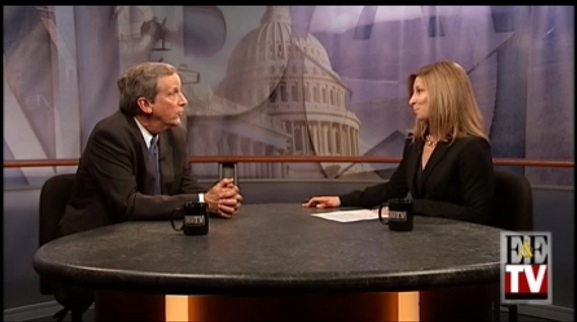
[End of Audio]
http://www.eenews.net/tv/2013/07/08
